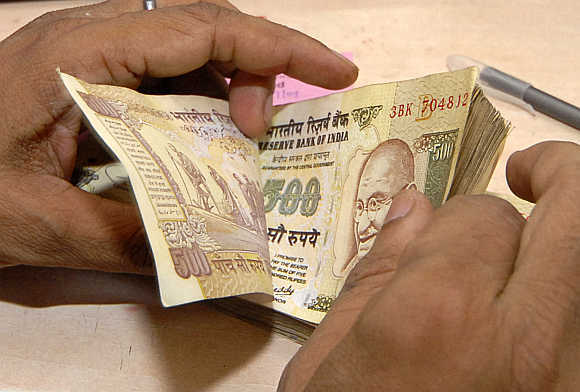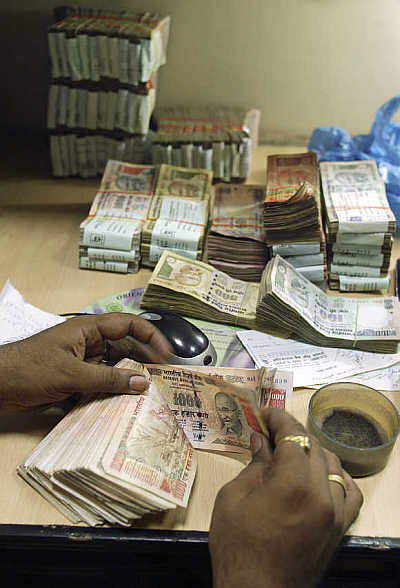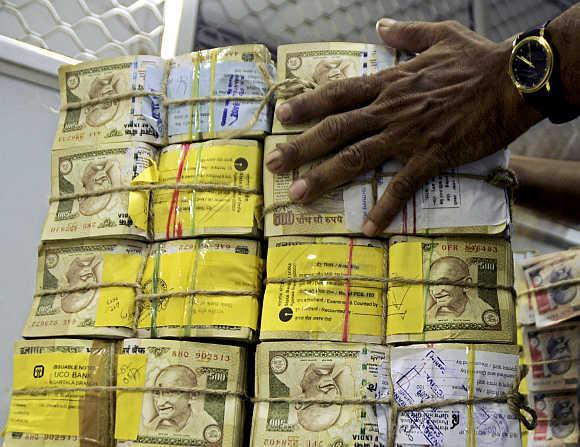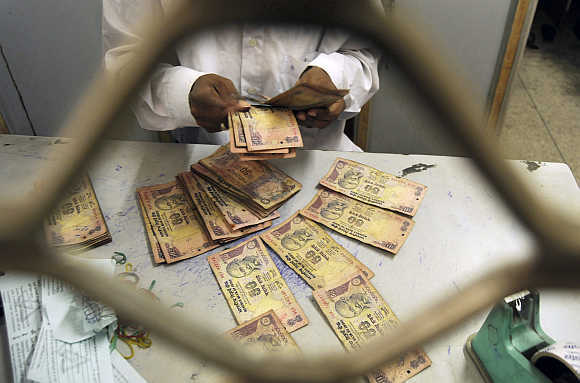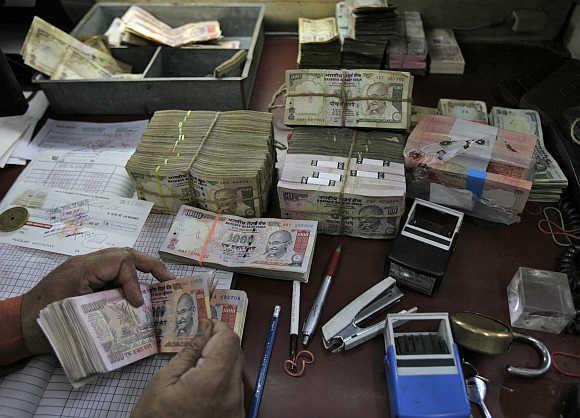 | « Back to article | Print this article |
Managing the rupee's fall without making mistakes
The rupee’s continuing slide against the dollar will have troubled the government in New Delhi as well as the Reserve Bank of India. The rupee lost over five per cent of its value in the month of June alone, and a smaller but comparable amount in the previous month; in general, over the past two years, it has depreciated around 40 per cent, from about 44 to the dollar in July 2011 to about 61 to the dollar now.
This means that Finance Minister P Chidambaram’s Budget arithmetic about the amount to be spent on fuel subsidies is in trouble - since the assumption was made then that the rupee would, on average, be at 55 to the dollar over the year 2013-14.
Click NEXT to read more...
Managing the rupee's fall without making mistakes
The Budget’s fiscal deficit projection will, thus, be in trouble - even if there was not already larger-than-expected stress on it, after the food security ordinance was promulgated. Naturally, there will be calls for the government to do something. But the most important thing that it could do would be to refrain from making mistakes.
Given India’s relative inflation and its current account deficit, expecting a stable exchange rate would be too much. Trying to defend the rupee’s value against the dollar - as opposed to ensuring that any depreciation is orderly, not disorderly - would be extremely unwise. In other words, the central bank and the government must not even think about drawing down India’s dollar reserves, no matter how many may be worried about the rupee’s loss of value.
Click NEXT to read more...
Managing the rupee's fall without making mistakes
Nor should “solutions” be tried to prop up the exchange rate that will only lead to further troubles down the road. For example, incentivising short-term debt inflows may help to reverse the flow out of dollars, but it will only further destabilise the external account - thereby leaving it more vulnerable to a sharp turnaround in sentiment and, therefore, to crisis.
In other words, the government should let the rupee depreciate. A falling rupee is not a hit to national pride - it is merely a basic economic consequence of India’s struggle to pay properly for its gold and fuel imports, and the invisible hand’s way of counteracting that demand. It is precisely because the rupee is falling that the danger of a serious balance-of-payments crisis is not even more acute than it already is.
Click NEXT to read more...
Managing the rupee's fall without making mistakes
The trouble is that some companies that have considerable external exposure will find themselves unable to cover their dollar debt. Again, given the nature of India’s political economy, there will be pressure on the government to somehow bail those companies out.
That, too, must be resisted. Indeed, there are more things that the government should refrain from doing at this time than it can consider possibly doing. In particular, any regulatory forbearance for straitened companies would be an error.
Click NEXT to read more...
Managing the rupee's fall without making mistakes
Nor should Indian banks be expected to step in and take up the burden, if foreign refinancing becomes difficult. After all, Indian banks are already suffering from an increasingly crippling burden of bad loans, especially to larger and politically connected firms.
Those problems should not be allowed to aggravate.
